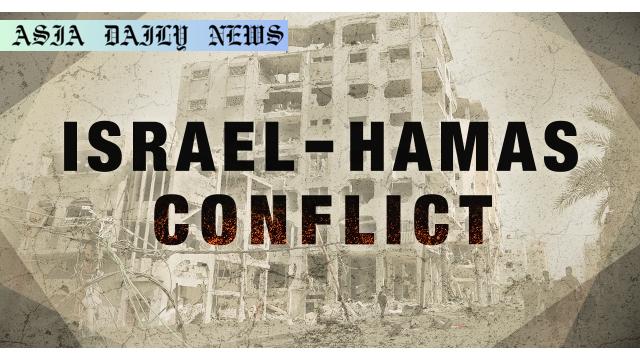UN agency calls for lasting ceasefire between Israel and Hamas in Gaza following intense conflict and recent truce.
The UNRWA emphasizes the need for negotiations to achieve a lasting ceasefire in Gaza.
United Nations successfully facilitates the entry of humanitarian aid into Gaza.
Israel resumes military operations in the West Bank, intensifying regional tensions.

The United Nations Relief and Works Agency (UNRWA) has called upon both Israel and Hamas to utilize the current truce in Gaza as an opportunity to negotiate and secure a lasting peace agreement. The appeal comes on the heels of a six-week ceasefire that went into effect on Sunday. With over 15 months of conflict now momentarily halted, the call for long-term solutions holds significant weight not only for regional stability but also for the lives of millions residing in Gaza.
A Halt to Hostilities
The cessation of conflict between Israel and Hamas has provided a much-needed period of calm in a region long plagued by volatility. According to reports, there has been no renewed fighting since the truce’s commencement, marking a rare and critical interval of quiet. The emphasis of the UN and its agency, UNRWA, is now firmly placed on initiating groundwork for sustained peace. The six-week ceasefire, while significant, is but a fragile agreement that requires constant effort to maintain and capitalize upon by both sides.
Delivering Aid and Rebuilding Lives
As calm settles over Gaza, the United Nations has made strides in delivering humanitarian aid. As part of this effort, 915 trucks filled with food and essential supplies have entered the territory. These resources undoubtedly play a vital role in alleviating the immediate suffering caused by prolonged conflict. Footage released from Khan Younis, a town in southern Gaza, showcases the trucks arriving to deliver aid, serving as a beacon of hope during these critical times.
UNRWA officials, however, stress that delivering supplies is but one part of the equation. For Gaza to heal, both physically and emotionally, attention must shift toward rebuilding lives, infrastructure, and trust. The humanitarian response should be complemented by political initiatives, creating an environment where the residents of Gaza can hope for a stable and prosperous future.
Challenges Ahead
While the ceasefire holds in Gaza, the West Bank is witnessing escalating tensions. On Tuesday, Israeli Prime Minister Benjamin Netanyahu announced a significant military operation targeting Palestinian militants in the city of Jenin. As a result, eight people were reported dead, and 35 others were injured. This juxtaposition of peace on one side and heightened conflict on the other presents a grim challenge for regional stability and future negotiations.
Such actions threaten to inflame the already volatile situation and may undermine efforts to achieve a lasting resolution in Gaza. UN officials and international leaders must strive not only to sustain the Gaza ceasefire but also to address the broader regional tensions that complicated the peace process.
Path to Lasting Peace
For a durable ceasefire to become a reality, both sides must demonstrate commitment to constructive dialogue. The current six-week period represents a vital window during which stakeholders can establish a framework for peace. This involves addressing the longstanding grievances of both parties, creating mechanisms for conflict resolution, and ensuring that humanitarian and developmental aid continues to flow unimpeded.
International bodies, including the United Nations and other mediating actors, play an essential role in facilitating these discussions. By maintaining pressure and support for negotiations during this critical period, there exists a slim but meaningful chance for genuine progress toward a peaceful resolution.
Commentary
A Fragile Opportunity for Hope
The call by UNRWA for a lasting ceasefire in Gaza resonates as a deeply necessary and timely intervention. For a region so scarred by conflict, even six weeks of relative peace offers hope that change is possible. However, tangible progress must be made during this window, or the enclave risks slipping back into violence and despair.
It is heartening to see humanitarian aid being delivered in large quantities, a testament to the global community’s ability to come together in dire circumstances. Yet, aid alone cannot mend the broken social and political fabric. Rebuilding trust among communities in Gaza and addressing their fundamental needs must take center stage in the coming negotiations.
Managing Rising Tensions in the West Bank
While the peace in Gaza offers hope, the expanding military operations in the West Bank serve as a stark reminder of the fragility of the situation. The global community must encourage restraint and diplomacy as tools to address tensions in the region. Without parallel efforts to resolve conflicts in the West Bank, the gains achieved in Gaza are at risk of being overshadowed by escalating strife elsewhere.
Ultimately, what is unfolding in Gaza and the West Bank underscores the need for comprehensive peace-building measures. The international community, particularly influential players in the region, must continue to push for solutions that not only address immediate crises but also pave the way for long-term reconciliation and stability.


